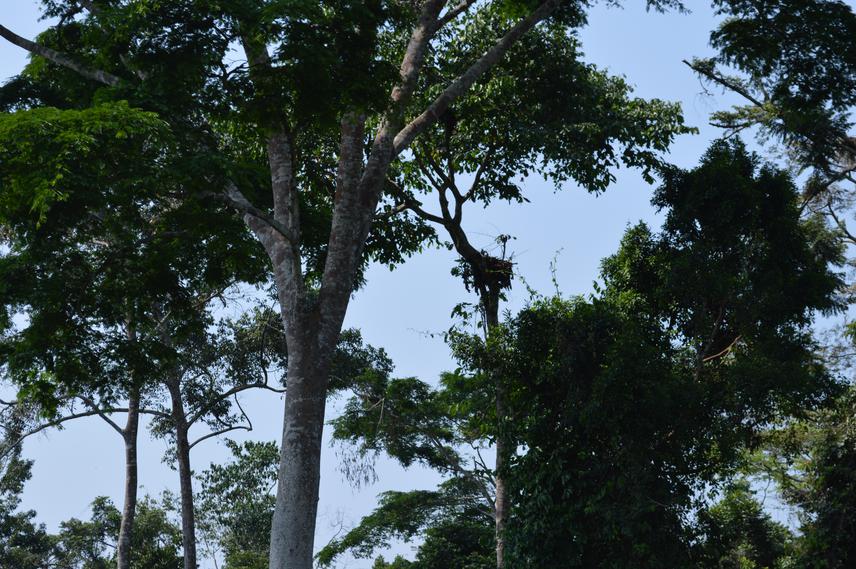Osiris Doumbé
The main goal of this project is to estimate the distribution and the density of the most endangered chimpanzees (Pan troglodytes ellioti) in the North-West region of Cameroon.

Chimpanzee nesting.
The Ellioti Project was created by Osiris A. Doumbe after realizing there was an important lack of information on the status of the Nigeria-Cameroon chimpanzee (Pan troglodytes ellioti) in the North-West region of Cameroon. This subspecies of chimpanzee is the rarest and the least studied of all four and is only found in the lowland and montane forests of Eastern Nigeria and Western Cameroon.
The main goal of this project is to conduct surveys in several sites of the region in order to establish a regional map of the distribution and the density of Pan troglodytes ellioti. The chosen sites are: Ako-Mbembe Forest Reserve, Bafut-Ngemba Forest Reserve, Bali-Ngemba Forest Reserve, Benakuma Lake, Fungom Forest Reserve, Mbi Crater Faunal Reserve, and Kom-Wum forest. Kagwene Gorilla Sanctuary, Kimbi Wildlife Reserve and Kilum-Ijim forest were not included in this project as chimpanzees never occurred in the first one and have been extinct in the two others since the late 1980s. On each site, the distribution and the density of Pan troglodytes ellioti will be estimated using the nest counting method. This method is well-known for giving a good estimation of the density of chimpanzees, as great apes tend to be difficult to see in the forest, particularly if they are hunted.
In parallel, a simple presence/absence inventory of other diurnal primates will be made from direct observations. The project also includes the replantation of trees in the Kedjom-Keku forest. This fragmented forest located less than 20km from Bamenda, the largest city of the region, is home to a small population of chimpanzees. In addition, presentations will be made in primary and/or secondary schools to teach the children some conservation values. After these presentations, several copies of a book created for the project (which therefore will precisely target the attention of the children of this region regarding the protection of their environment) will be given to each school. Most of the field work of this project will start in October-November, after the rainy season for the survey sites to be easily reachable.
The Ellioti Project is partially financed by the Primate Conservation Inc.